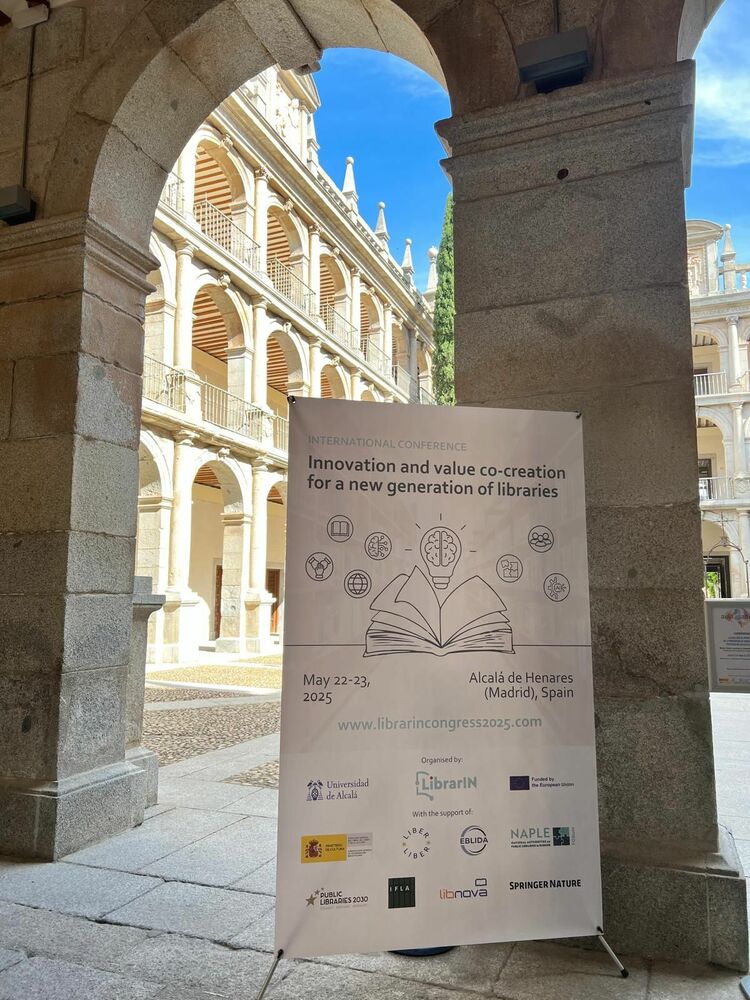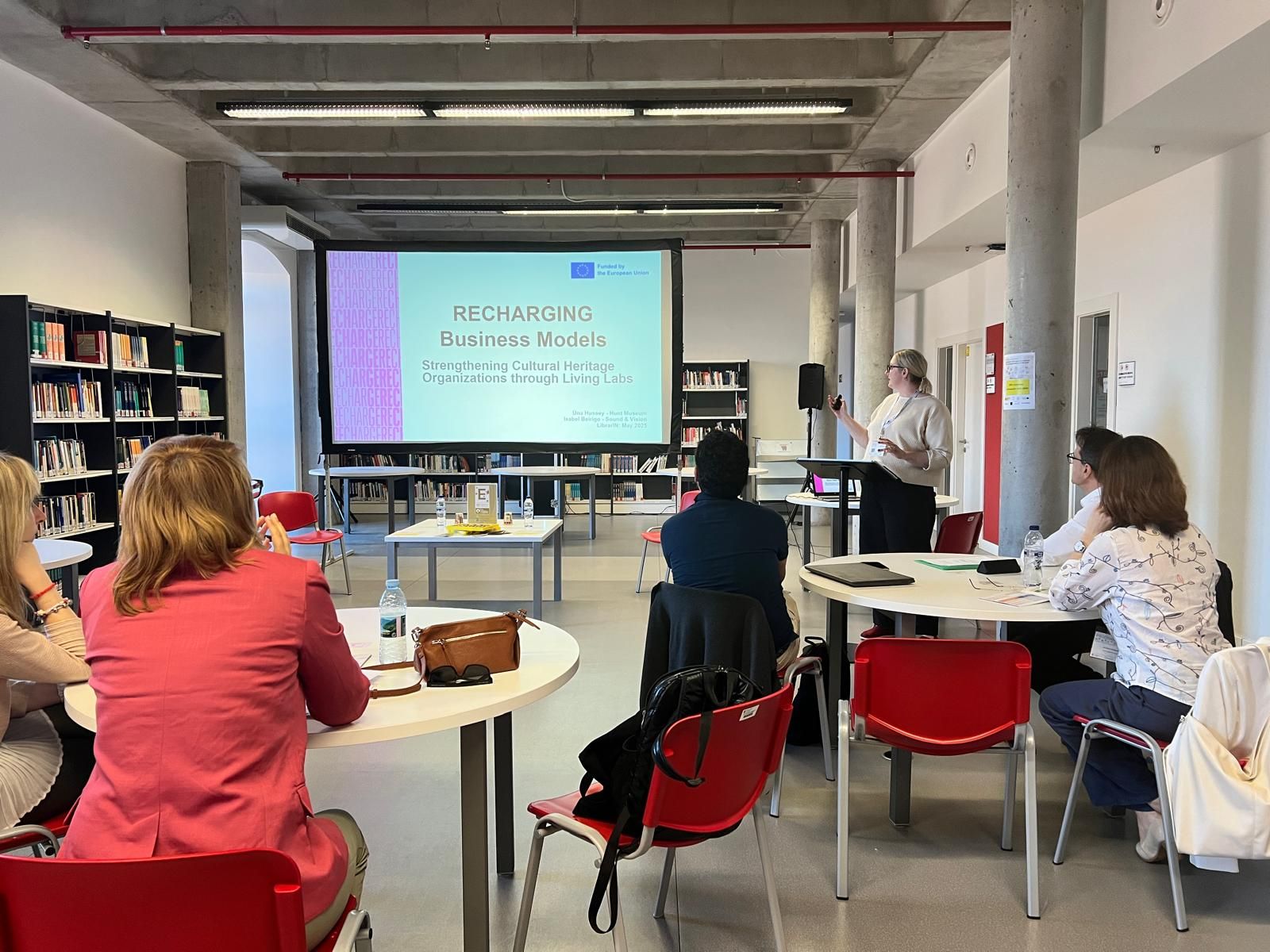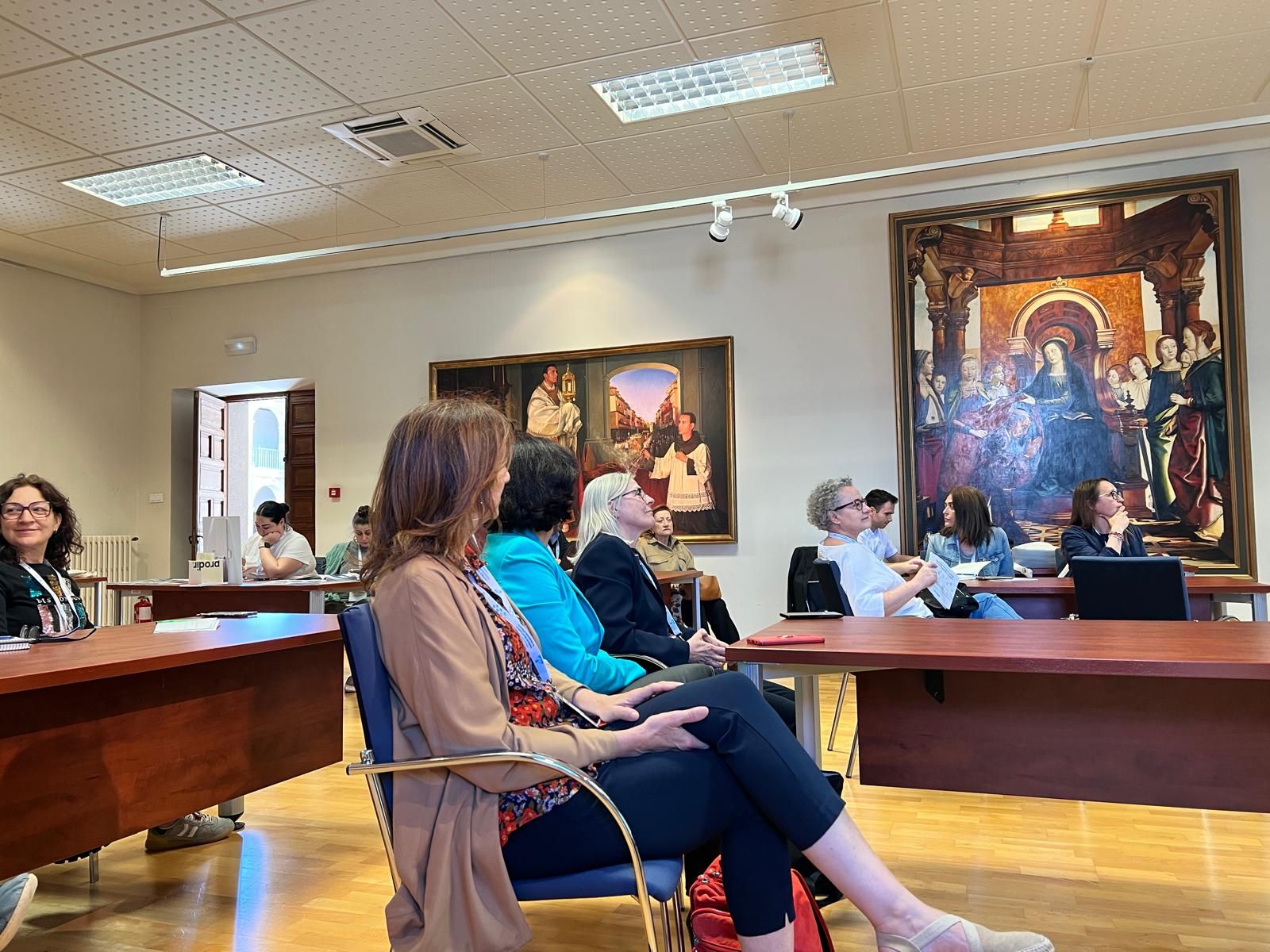Innovation, Participation, and the Future of Libraries — Notes from the LibrarIN International Conference

The recent LibrarIN International Conference, held in Alcalá de Henares–Madrid, brought together professionals and researchers from across Europe to explore the theme of “Innovation and value co-creation for a new generation of libraries.” As a sister initiative of RECHARGE, LibrarIN shares a commitment to rethinking cultural institutions through participatory governance and sustainable financial models, with a particular focus on the evolving role of libraries in contemporary society.
Among the programme’s highlights was a presentation by Úna Hussey on the testing and implementation of cultural participatory business models within the RECHARGE Living Labs. This was followed by an overview of RECHARGE’s nine forthcoming policy recommendations, scheduled for publication in July, by Isabel Berigo. These contributions provoked a lively and constructive exchange, situating RECHARGE’s work within broader European discussions around institutional resilience, co-creation, and civic agency.
Central to the conference was the question of how libraries can engage with artificial intelligence not simply as a technological advance, but as a potential instrument of social innovation. Several presentations addressed the ways in which AI is being explored to enhance access to collections and support research, while also acknowledging the significant ethical, financial, organisational, and technical barriers to implementation. A strong desire was expressed to reduce dependence on large technology providers by developing custom, open-source tools. However, many libraries, particularly smaller public institutions, lack the necessary internal expertise and capacity to deploy such solutions at scale. The issue of limited funding emerged repeatedly as a critical constraint, both in terms of initial adoption and long-term maintenance.
A broader shift was also evident in how libraries are redefining their social roles. Moving away from the traditional “help yourself” model, libraries are increasingly positioning themselves as community-building institutions — spaces where listening, empathy, and participatory dialogue are as central as access to information. These developments mirror challenges faced by museums and archives, including fragmented data infrastructures, skills gaps, and the need to align with rapidly changing user expectations.
The conference concluded with a policy session that resonated strongly with the ambitions of RECHARGE. Discussions underscored the importance of multi-level funding, robust legal frameworks, and data-informed strategies as prerequisites for long-term sustainability. Stefaan Hermans of the European Commission’s Directorate-General for Education, Youth, Sport and Culture (DG EAC) affirmed the strategic relevance of libraries within EU cultural policy, highlighting a forthcoming “culture compass” to be developed by 2026 to guide innovation and institutional transformation across the sector.
Co-creation practices and citizen labs were presented as critical mechanisms through which libraries can foster civic engagement and social innovation. At the same time, the sector’s role in promoting media literacy — particularly considering the growing influence of generative AI — was identified as an essential component of democratic cultural life. By supporting the preservation of research data, enabling public participation in science, and maintaining equitable access to knowledge, libraries continue to serve not only as cultural institutions but also as engines of social and epistemic justice.
The LibrarIN conference offered an important space for critical reflection on the shared responsibilities and opportunities faced by libraries, museums, and archives. In this context, the RECHARGE project finds strong resonance, particularly in its emphasis on collaborative methodologies and policy innovation grounded in real-world experimentation.





Share